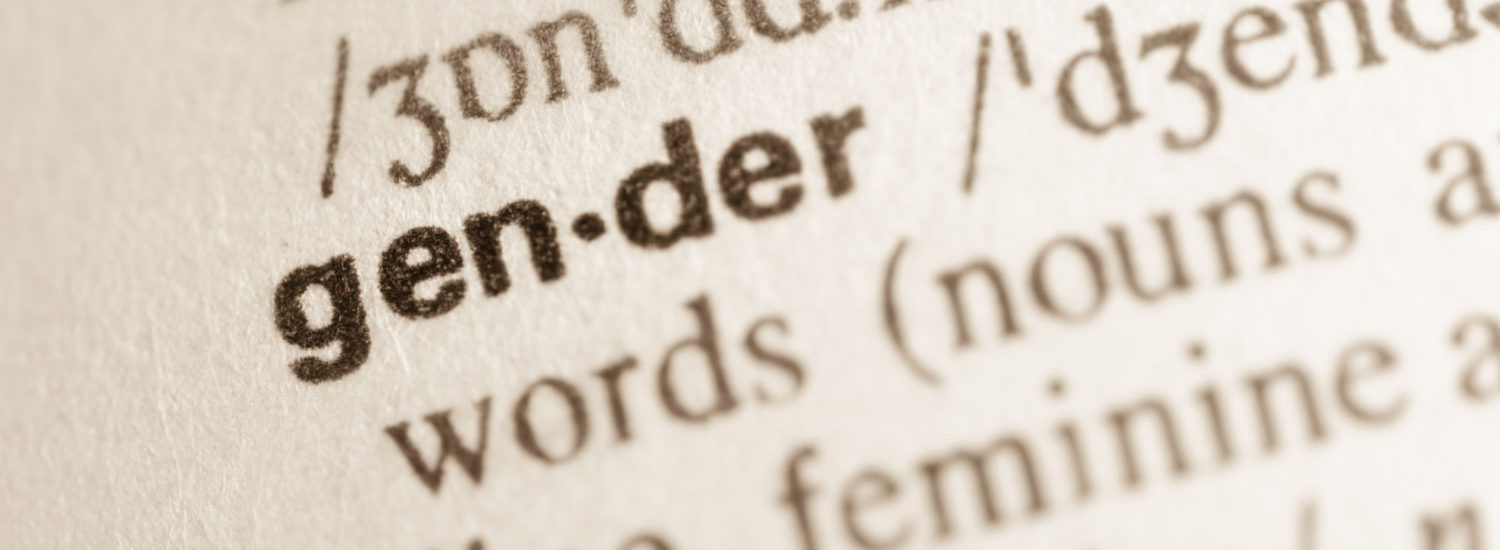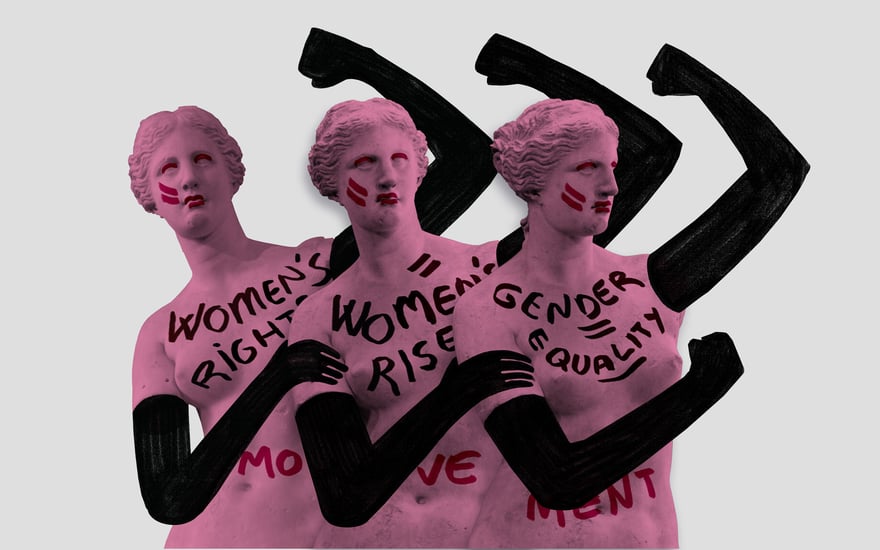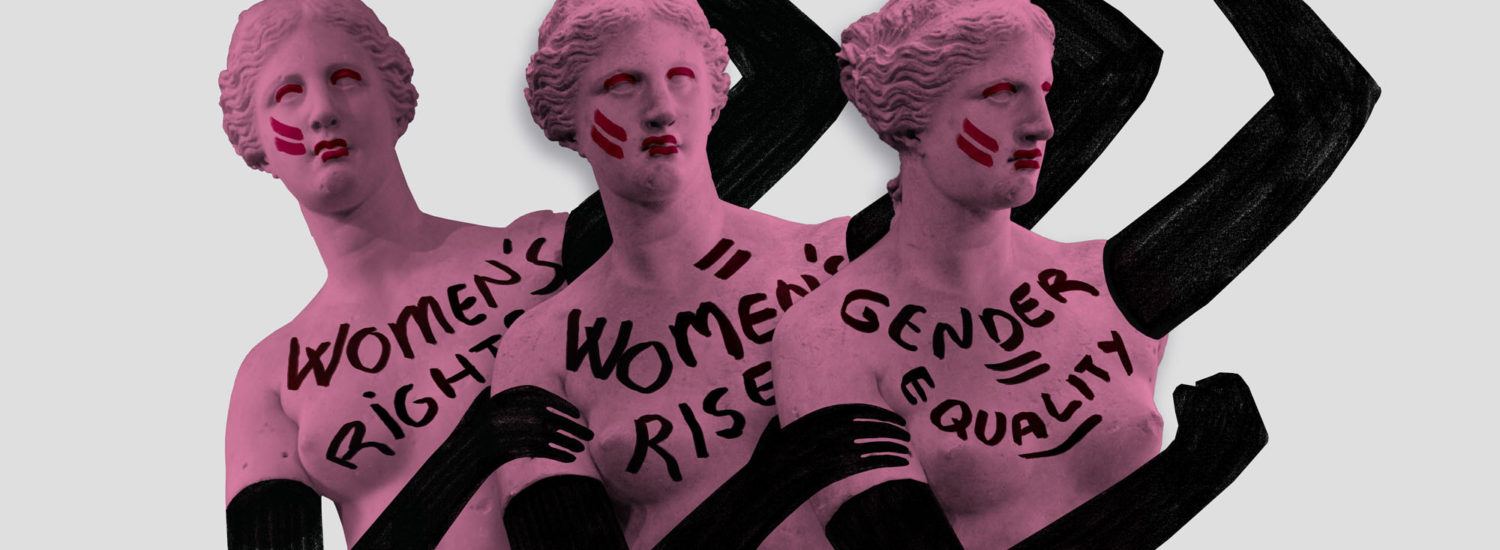Discover Policy Brief
n°06
What should be the Criteria to Evaluate UNESCO’s ‘Global Priority Gender Equality’?
NOVEMBER 2012
UNESCO has made gender equality one of its two global priorities. Against what criteria should its performance be measured?
Ten questions are recommended for inclusion in the forthcoming evaluations by UNESCO and the UK Department for International Development (DFID):
→
Does UNESCO have an appropriately ambitious vision of gender equality that is clearly articulated and relevant for its role?
→
Is the specific contribution of UNESCO to achieving gender equality appropriately identified in UNESCO and each of its Sectors?
→
Does UNESCO have a clear policy as to how it will contribute to gender equality, understanding and specifying the causal pathways through which change might be catalysed?
→
Are the outcomes, results, benchmarks and performance indicators aligned with UN agreements on gender equality and with the policy to achieving change?
→
Does UNESCO have an effective balance between concentrating specialist expertise on gender equality and mainstreaming gender equality to all normal policy actors?
→
Has there been appropriate re-balancing of the gender composition of senior decision-makers
→
Has UNESCO effectively mobilised all available external actors on gender equality?
→
Are the accountability structure, coordination and internal leadership sufficiently clear and effective to enable the delivery of gender equality as a priority strategy?
→
Does UNESCO allocate sufficient resources to its gender equality strategy to justify the claim that it is a ‘priority’?
→
What movement towards gender equality has UNESCO accomplished?
Read Policy Brief
n°06
01
Introduction
UNESCO made gender equality one of its two medium term global priorities in the period 2008–2013. Against what criteria should UNESCO’s performance on gender equality be evaluated?
Gender equality is an important goal, recognised in the Millennium Development Goals, the UN Beijing Platform for Action, and the UN Convention on the Elimination of All Forms of Discrimination Against Women. UNESCO is the UN agency with special responsibility for education, science and culture.
A review of UNESCO is to be conducted by the UK Government, while a review of UNESCO’s performance on gender equality is being conducted by UNESCO itself.
This Policy Brief offers recommendations on the criteria to be used in such evaluations. It draws on the substantial body of academic research and policy debate in the context of UNESCO and DFID review processes.

02
Current Situation
There is a range of possible approaches to evaluating gender equality policy, including: UNESCO’s outcome and performance indicator framework that is part of its plan for implementing its gender equality strategy; UNESCO’s Internal Oversight Service criteria; DFID Results Framework; and a very substantial academic and policy literature on gender equality policy.
UNESCO’s gender equality policy
UNESCO has long promoted gender equality. In the period 2008–2013 it became one of its two global priorities. The UNESCO Priority Gender Equality Action Plan for 2008–2013 is a roadmap to translate its medium term strategy into specific actions and outcomes and provides a detailed account of expected outcomes and performance indicators against which they can be measured and reported.1
UNESCO
Gender Equality will be subject to several review processes within UNESCO. The Gender Equality Division is developing its own method of evaluating each of its programmes. In 2012–3, UNESCO’s Internal Oversight Service (IOS) will evaluate the Priority Gender Equality Action Plan 2008–2013;2 within this process the International Labour Organisation (ILO) participatory gender audit instrument will also be utilised.
UK Government
The UK Government evaluates UNESCO as part of its Multilateral Aid Review. This review, led from the UK Department for International Development (DFID), stresses the importance of developing a robust results-oriented framework in order to deliver impact on the lives of poor people as well as value for money. The DFID Results Framework has four tiers, with the highest level derived from the Millennium Development Goals.3
Academic and policy expertise
The practice of evaluating gender equality policy has emerged as a field of expertise at the point of intersection of policy and academic worlds.4 This literature offers specialised assessment of gender equality policy, and the most useful ways of identifying the specific techniques and methodologies that are used in successful programmes. Gender equality and gender mainstreaming policy conducted in a range of institutions has been evaluated, including the actions of major global bodies such as the World Bank5 and those of International Development Agencies.6 The European Union has funded evaluations of gender equality policy, building up a considerable body of expertise and policy guidelines in this area.7
1 UNESCO Priority Gender Equality Action Plan 2008–2013.
2 E.g. UNESCO IOS Evaluation of UNESCO Priority Africa. IOS/EVS July 2012.
3 DFID’s Results Framework. UK Department for International Development. Level 2 is programme results, Level 3 is operational effectiveness and Level 4 is organisational effectiveness.
4 Gender mainstreaming is analysed in two journal special issues edited by Sylvia Walby in 2005: Social Politics, 12 (3): 321–452 and International Feminist Journal of Politics, 7 (4): 453–638. A summary can be found in: Sylvia Walby (2005) ‘Gender mainstreaming: Productive tensions in theory and practice’, Social Politics, 12(3): 321–343.
5 Kate Bedford Developing Partnerships: Gender, Sexuality and the Reformed World Bank, University of Minnesota Press 2009.
6 Caroline Moser (2005) ‘Has gender mainstreaming failed? A comment on international development agency experiences in the South’, International Feminist Journal of Politics, 7(4): 576–590.
7 For example EU Framework 6 funding of ‘Quing: Quality in Gender Equality Policy’ compared
all EU Member States policies and machinery http://www.quing.eu/ and the European Union ‘Community of Practice of Gender Mainstreaming’ which focuses on such policies in EU Social Fund and Structural Funds: http://www.gendercop.com/; European Commission Gender Mainstreaming http://ec.europa.eu/social/main.jsp?catId=421&langId=en; European Commission (2010) New Strategy on Gender Equality. COM (2010) 491 final. Brussels: European Commission. http://ec.europa.eu/social/main.jsp?langId=en&catId=89&newsId=890&furtherNews=yes

03
Options: possible criteria for use in the evaluation
Issues for evaluation are identified, discussed in the light of existing knowledge and relevant questions and criteria for evaluation, then proposed. Possible topics include:
1.
Scale of vision of gender equality
2.
Distinctiveness of UNESCO’s mission on gender equality
3.
Clarity of policy
4.
Robustness of results oriented framework
5.
Effective balance of specialist expertise and mainstreaming
6.
Appropriate gender composition of decision-makers
7.
External leadership
8.
Internal leadership, coordination and accountability
9.
Appropriate resources
10.
Summary of UNESCO’s impact on gender equality
1.
Scale of vision of gender equality
Does UNESCO have an appropriately ambitious vision of gender equality that is clearly articulated and relevant for its role?
The interpretation of the goal of ‘gender equality’ has been subject to extensive academic, policy and political debate that has clarified its content and moved towards a consensus meaning.8 Within the UN system there are three key locations of authoritative and consensus summaries of the goals of gender equality policies: the UN Beijing Platform for Action, which specifies 12 critical areas;9 the Millennium Development Goals, especially but not only Article 3 on gender equality;10 and the UN Convention on the Elimination of All Forms of Discrimination Against Women.11 UNESCO sometimes prioritises human rights as its justification for action. UNESCO’s gender equality strategy defines gender equality in relation to ending discrimination against women, which is seen as a violation of women’s human rights; women’s empowerment; and equal sharing in power, knowledge, opportunities, rights and obligations.12
Specific questions:
→
Is the vision of gender equality held by UNESCO in alignment with UN agreements in the Beijing Platform for Action (PfA), the Millennium Development Goals (MDG) and the Convention on the Elimination of All Forms of Discrimination Against Women (CEDAW)?
→
Has the UN definition of the meaning of gender equality (PfA, MDG, CEDAW) been displaced in UNESCO by a focus on non-gender specific human rights or is the alternative or additional use of this latter perspective appropriate?
→
Is the intersection of gender with other inequalities sufficiently addressed so as to enable the vision to be relevant for all women?
→
new reporting and information sharing burden on UNESCO.
3.
Distinctiveness of UNESCO’s mission on gender equality
Is the specific contribution of UNESCO to achieving gender equality appropriately identified in UNESCO and each of its Sectors?
UNESCO has a specific remit in education, science and culture, while it has its ambitions to support peace and human rights. UNESCO has five distinctive functions: laboratory of ideas, clearing house, standard-setter, capacity-builder, and catalyst for international cooperation.
Specific questions:
→
Education: Is the education of girls given sufficient priority in UNESCO? The education of girls is central to Millennium Development Goal 3, while education is central to UNESCO. Gender gaps to the detriment of girls are to be found in the poorest countries, the most fragile states and areas in the Global South most affected by the 2008 financial crisis. Has the World Bank overtaken UNESCO in promoting the education of girls or is UNESCO appropriately engaged using its own interpretation of education?
→
Natural science and social science: Does UNESCO sufficiently prioritise the development of gendered capacity building in natural and social sciences concerning both the presence of women and analysis of gender issues? Does UNESCO underestimate the significance of actions it could take in building gendered capacity in the sciences (natural and social) or are its efforts about right?
→
Culture: Are there appropriately gendered definitions of culture in the development of World Heritage Sites, sport and culture, or do they entrench unequal conceptions?
4.
Clarity of policy
Does UNESCO have a clear policy as to how it will contribute to gender equality, understanding and specifying the causal pathways through which change might be catalysed?
The expert literature notes that international development organisations have tended to move more rapidly to change the words (terminology) they use than the actions they perform.13 This superficial change in matters that have higher visibility can create an illusion of change in contexts where few credible changes have occurred.
Specific questions:
→
Has UNESCO gone beyond the early stages of changing words (raising awareness and creating policies) and moved onto implementation of gender equality policy? Is the intermediate goal of ‘raising awareness’ given too much significance, when deeper changes in practices are advisable?
4.
Robustness of results oriented framework
Are the outcomes, results, benchmarks and performance indicators aligned with UN agreements on gender equality and with the policy to achieve change?
Developing indicators of deeper changes in policy areas addressed by UNESCO can be challenging. The development of quantitative indicators is ongoing,14 but is unevenly developed across fields,15 for example, the Millennium Development Goal (MDG) 3 on gender equality contains indicators on education, employment and parliament, but not violence. In this context there is a possibility that achievements might go unrecognised.16
Specific questions:
→
Has visibility been prioritised over credibility or not? Do the performance indicators capture substantive change? Are UNESCO outputs that contribute to gender equality appropriately identified?
5.
Effective balance of specialist expertise and mainstreaming
Does UNESCO have an effective balance between concentrating specialist expertise on gender equality and mainstreaming gender equality policy to all normal policy actors?
Development of and proper balance between the development of core gender expertise in specialist units and the mainstreaming of gender equality principles of policy making throughout the organisation by normal policy actors is widely recognised as a core feature of excellence in gender mainstreaming practice.
Specific questions:
→
How much specialist gender expertise and how many gender experts, are there in each Sector? Are there sufficient gender experts in each sector to support programme development appropriately?
6.
Appropriate gender composition of decision-makers
Has there been appropriate re-balancing of the gender composition of senior decision-makers?
The gender composition of decision-making bodies is widely held to have significant though not determinant effects on gendered policy decisions. There are two parts to this. First, current state of the art policy is to achieve 40% of each sex in senior decision-making positions (with ongoing discussion as to how this may best be achieved). Second, there is experimentation and unresolved debate as to the best way of including men in gender equality policy-making.
Specific questions:
→
Has the previous over-representation of men in senior decision-making been remedied?
7.
External leadership
Has UNESCO effectively mobilised all available external actors on gender equality?
UNESCO has a strong reputation that facilitates engagement by governments, civil society and other international bodies. UNESCO has the potential to develop and mobilise coalitions of international actors on gender equality issues in its remit. Relevant entities include: international professional bodies focused on gender equality as well as governmental units for gender equality in UNESCO’s field.
Specific questions:
→
Is the relationship with the newly formed UN Women appropriately defined?
→
Does UNESCO sufficiently cooperate with gender equality bodies in areas of its remit?
→
Does UNESCO sufficiently assist the building of gender equality capacity through external leadership?
→
Does UNESCO engage with the external world at a suitably ambitious scale or are current efforts too small-scale?
8.
Internal leadership, coordination and accountability
Are the accountability structures, coordination and internal leadership sufficiently clear and effective to enable the delivery of gender equality as a priority strategy?
UNESCO is a large and diverse organisation with many cross-cutting lines of reporting that can have a tendency to reduce speed of action. The mobilisation required to deliver on the changed allocation of resources necessary to fulfil a commitment to a newly defined ‘priority’ is demanding.
Specific questions:
→
Are UNESCO Gender Chairs and Networks sufficiently engaged?
→
Is leadership and coordination appropriately provided to Sectors and field offices?
→
Does the Division for Gender Equality deliver appropriate training on gender issues?
→
Is the relationship between the Division for Gender Equality, Office of the Director-General, Bureau of Strategic Planning and the Sectors appropriate?
→
Who decides on the size of the resource for the gender equality strategy?
→
Who is accountable to whom for the delivery of the gender equality strategy?
→
Is it appropriate that the gender focal points are not gender experts?
9.
Appropriate resources
Does UNESCO allocate sufficient resources to its gender equality strategy to justify the claim that it is a ‘priority’?
A simple reading of UNESCO’s budget suggests that a very small proportion of UNESCO’s budget is spent on gender equality, since only that spent on the Gender Division appears to be allocated to this goal.17 If further resources are deployed by the Sectors towards this goal these are not visible in the accounts and other reporting documents.
While the recruitment of additional funds is desirable, there are dangers of reputational damage if offers of inappropriate external funding are accepted. This may be regarded as an absolute or as a trade-off. There is a specific issue around damage to reputation on gender equality if the sources of funding are perceived as trivialising the issue at stake. Opinions appear to be divided as to whether the balance is excellent or problematic.
Specific questions:
→
What proportion of UNESCO’s resources (funds, staff) is allocated to its gender equality strategy? If resources outside the Division for Gender Equality are used on gender equality policy can these be made visible so as to permit their evaluation? How many UNESCO staff are gender experts?
→
Are additional sources of funding appropriately mobilised? Does UNESCO evaluate the gender equality credentials of companies with which it is associated or with which it may wish to form an association?
10.
Summary of UNESCO’s impact on gender equality
What movement towards gender equality has UNESCO accomplished?
This is a final summary question.
1 UNESCO Priority Gender Equality Action Plan 2008–2013.
2 E.g. UNESCO IOS Evaluation of UNESCO Priority Africa. IOS/EVS July 2012.
3 DFID’s Results Framework. UK Department for International Development. Level 2 is programme results, Level 3 is operational effectiveness and Level 4 is organisational effectiveness.
4 Gender mainstreaming is analysed in two journal special issues edited by Sylvia Walby in 2005: Social Politics, 12 (3): 321–452 and International Feminist Journal of Politics, 7 (4): 453–638. A summary can be found in: Sylvia Walby (2005) ‘Gender mainstreaming: Productive tensions in theory and practice’, Social Politics, 12(3): 321–343.
5 Kate Bedford Developing Partnerships: Gender, Sexuality and the Reformed World Bank, University of Minnesota Press 2009.
6 Caroline Moser (2005) ‘Has gender mainstreaming failed? A comment on international development agency experiences in the South’, International Feminist Journal of Politics, 7(4): 576–590.
7 For example EU Framework 6 funding of ‘Quing: Quality in Gender Equality Policy’ compared
all EU Member States policies and machinery http://www.quing.eu/ and the European Union ‘Community of Practice of Gender Mainstreaming’ which focuses on such policies in EU Social Fund and Structural Funds: http://www.gendercop.com/; European Commission Gender Mainstreaming http://ec.europa.eu/social/main.jsp?catId=421&langId=en; European Commission (2010) New Strategy on Gender Equality. COM (2010) 491 final. Brussels: European Commission. http://ec.europa.eu/social/main.jsp?langId=en&catId=89&newsId=890&furtherNews=yes

05
Recommendations: questions to include in the evaluation
Ten questions are recommended for inclusion in the evaluation of UNESCO’s gender equality strategy:
→
Does UNESCO have an appropriately ambitious vision of gender equality that is clearly articulated and relevant for its role?
→
Is the specific contribution of UNESCO to achieving gender equality appropriately identified in UNESCO and each of its Sectors?
→
Does UNESCO have a clear policy as to how it will contribute to gender equality, understanding and specifying the causal pathways through which change might be catalysed?
→
Are the outcomes, results, benchmarks and performance indicators aligned with UN agreements on gender equality and with the policy to achieving change?
→
Does UNESCO have an effective balance between concentrating specialist expertise on gender equality and mainstreaming gender equality to all normal policy actors?
→
Has there been appropriate re-balancing of the gender composition of senior decision-makers?
→
Has UNESCO effectively mobilised all available external actors on gender equality?
→
Are the accountability structures, coordination and internal leadership sufficiently clear and effective to enable the delivery of gender equality as a priority strategy?
→
Does UNESCO allocate sufficient resources to its gender equality strategy to justify the claim that it is a ‘priority’?
→
What movement towards gender equality has UNESCO accomplished?

References
Acknowledgements
This policy brief was produced on behalf of the UK National Commission for UNESCO (UKNC) by Professor Sylvia Walby, a member of the Board of the UKNC, Distinguished Professor of Sociology and UNESCO Chair in Gender Research at Lancaster University, UK.
Thanks are given all those who gave their time towards the preparation of the document. This includes the UKNC Secretariat, James Bridge and Ian White; and Ambassador Matthew Sudders, UK Permanent Delegate to UNESCO. Those consulted included: National Alliance of Women’s Organisations (Chair, Dr Annette Lawson OBE); Equality and Diversity Forum (Chief Executive, Amanda Ariss; Director of Communications and Research, Dr Moira Dustin); and Professor Mieke Verloo (author of the Council of Europe policy document on ‘Gender Mainstreaming’).
The views contained in this policy brief are those of the UK National Commission for UNESCO and do not necessarily reflect those of UK Government or the individuals or organisations who have contributed to this report.
? Browse #PolicyBriefs

Enhancing and Harmonising the Strategic Management of UNESCO’s Goodwill Ambassador Programme
AUGUST 2013
#PolicyBrief n°11

An evaluation of the Intergovernmental Oceanographic Commission’s role in global marine science and oceanography
FEBRUARY 2015
#PolicyBrief n°13
The UK National Commission for UNESCO’s Policy Advice
We work with world-leading experts to advise the UK and devolved governments on UNESCO-related issues and to shape UNESCO’s programmes
From analysing global education goals to practical steps to implement UNESCO’s Recommendations, our advice helps ensure UNESCO’s work is effective and UK governments can fulfil their commitments as members of UNESCO






